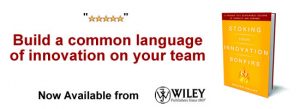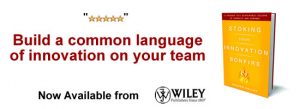Will You Navigate the Future with Clear Innovation Skills?
 Where will we focus to make sure we develop the right proficiencies and abilities to manage our innovations of the future? For me innovation capabilities and competencies need to be far more adaptive and aligned to different emerging skills, so we are able to find better innovating solutions for our collective futures.
Where will we focus to make sure we develop the right proficiencies and abilities to manage our innovations of the future? For me innovation capabilities and competencies need to be far more adaptive and aligned to different emerging skills, so we are able to find better innovating solutions for our collective futures.
The issue is this: if we do want to reshape much of what we are struggling with today – poor growth, diminishing futures, disconnected communities, stagnating economies or ones struggling to emerge from devastated and austerity measures inflicted upon them – we do need to change our skill sets to reflect a more realistic and up to date need to navigate and transform knowledge to tackle these. Often our present skills are not equipped to manage in these more “disruptive†environments.
I wrote in a past post about Learning to absorb new Knowledge for Innovation and the ability to understand Absorptive Capacity and how it works. Recently I followed that up with two recent posts about our pressing need that Jobs must be created but our skills do need very much adapting and refining, from where we are at present. One post was To Win the Innovation Race and the other was its precursor A Present Jobless Innovation Era Being Faced.
Our real need is to put in place those stronger adaptive skills as our foundations so we can be better equipped to compete in the growing innovation race we all facing at personal, community and national levels. We need to equip differently to meet the tougher global conditions that will be with us for our lifetimes, irrespective of our present age.
Competition won’t go away; it will only increase in its intensity.  To meet this we need to be far better equipped to be ‘innovation-ready’ in our skills. What forms a better ‘innovation ready’ skill set?
So what are those future skills we should be working towards to group around?
There was a report published in 2011 by the Institute for the Future (IFTF) and sponsored by the University Of Phoenix Research Institute to understand the skills workers will need over the next decade in our changing world, based far more on technology and its continued advance.
The report Future Work Skills 2020 looks initially at what it feels are the six drivers that are shaping our landscape and then the ten skills they see as emerging that need to be where we place our future focus upon. These are:
Sense-making: the ability to determine the deeper meaning or significance of what is being expressed
Social intelligence: ability to connect to others in a deep and direct way, to sense and stimulate reactions and desired interactions
Novel & adaptive thinking: proficiency at thinking and coming up with solutions and responses beyond that which is rote or rule-based
Cross -cultural competency: ability to operate in different cultural settings
Computational thinking: ability to translate vast amounts of data into abstract concepts and to understand data-based reasoning
New-media literacy: ability to critically assess and develop content that uses new media forms, and to leverage these media for persuasive communication
Transdisciplinarity : literacy in and ability to understand concepts across multiple disciplines
Design mindset: the ability to represent and develop tasks and work processes for desired outcomes.
Cognitive load management: ability to discriminate and filter information for importance, and to understand how to maximize cognitive functioning using a variety of tools and techniques
Virtual collaboration: ability to work productively, drive engagement, and demonstrate presence as a member of a virtual team.
A call to action
As the report authors of Anna Davies, Devin Fidler, and Marina Gorbis suggest, the results have clear implications for individuals needing to learn these skills. They will be asking from where will these come? From the educational institutions that need to grapple with changes that are occurring fast.
Also it is the actions both in business and at government level on how they will encourage and develop the strategies and policies fast enough, so as to offer the incentives to drive the changes needed. It is how quickly we move towards any organized ‘grouped’ learning of new skills can we begin to build within these new groupings.
All institutions certainly do need to provide the leadership to embrace the shifts needed in a constantly changing set of lifelong learning. It is recognized increasingly that skill renewal is constant to meet tomorrow’s ever changing global challenges. A place where skills are far more heavily reliant on technology and we are able to manage these constant changes effectively. So we need to be ready as when new knowledge emerges we can gets translate it into new values. We discover, we absorb and we translate.
What do the ten future skills offer us
Predictions can always be difficult but the impression I gained from looking at the suggested ten future skills suggested by IFTF is that they do seem to make for a solid basis for us to gather around.
What of course we need to do is to develop what ‘lies underneath these ten skills ‘to allow us all to become more ‘innovation ready’ in our skills needed to survive. These might give us that better chance to thrive in the future and find fresh innovating opportunities because we are better equipped in relevant skills.
The burning issue is that our window of time to change and incorporate these into our organized learning is shrinking at ever faster rates. We need to move from recognition of these skills into the setting of building them far more systematically.
We need to build our future innovation capacities on more relevant skills that are based more on what we need to have within our ‘natural’ skills today at least, and not ones still based on 20th century practices. Our skills need updating to meet changing and challenging times.
image credit: mpiweb.org
Wait! Before you go…
Choose how you want the latest innovation content delivered to you:
- Daily — RSS Feed — Email — Twitter — Facebook — Linkedin Today
- Weekly — Email Newsletter — Free Magazine
 Paul Hobcraft runs Agility Innovation, an advisory business that stimulates sound innovation practice, researches topics that relate to innovation for the future, as well as aligning innovation to organizations core capabilities.
Paul Hobcraft runs Agility Innovation, an advisory business that stimulates sound innovation practice, researches topics that relate to innovation for the future, as well as aligning innovation to organizations core capabilities.
NEVER MISS ANOTHER NEWSLETTER!
LATEST BLOGS
The Evil Downside of Gift Cards
This past holiday season I saw probably one too many articles trumpeting the value of gift cards to retailers and how they are a great thing for retailers. My skeptic side starts coming out as I see article after article appear, and I have to start asking “Is the increasing prevalence of gift cards as a holiday gift (primarily Christmas) a good thing for retailers?”
Read MoreWhy the iPhone will not succeed – Yet
The new Apple iPhone is set to launch on June 29, 2007 and the press and investors are making it a darling. Investors have run Apple’s stock price up from about $85 per share before its announcement to $125 per share recently, but the iPhone still will not succeed – at least not yet.
Read More




I wish to be more enlightened about the various perspectives to innovation and ideation. How do I subscribe? Many thanks for the above posts.
You can sign up for our email communications here:
https://innovationexcellence.sites.hubspot.com/ix-communication-preferences?__hstc=257021780.49d7a4807e99c7fafbda26574ad1ddb4.1378045868436.1387563140879.1387638503221.444&__hssc=257021780.1.1387638503221&__hsfp=2825312980
You can subscribe to our RSS feed here:
https://feeds.feedburner.com/business-strategy-innovation
OR
https://www.disruptorleague.com/blog/feed/
All the best,
Braden
@innovate